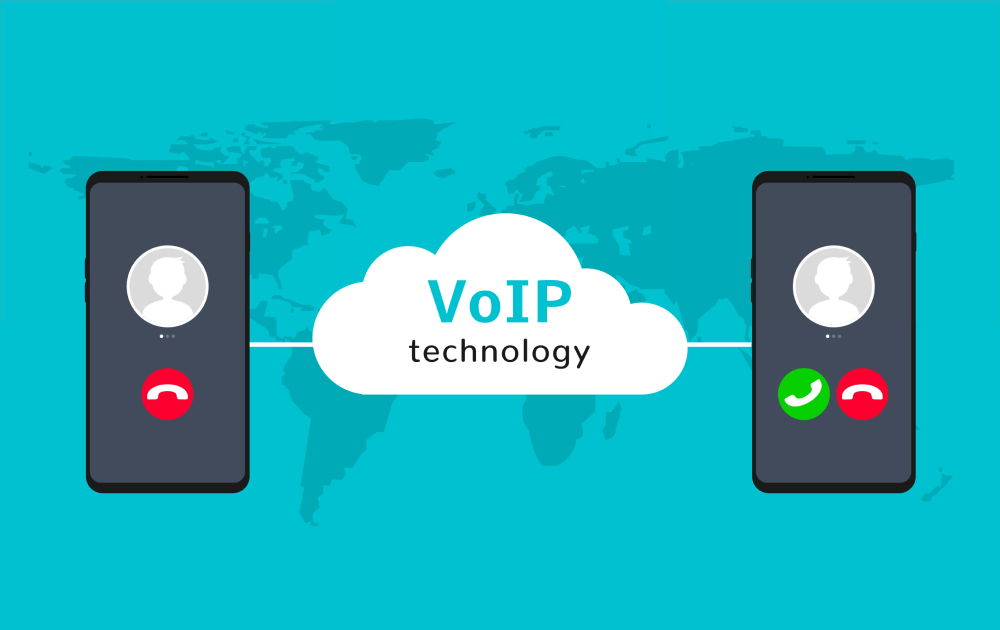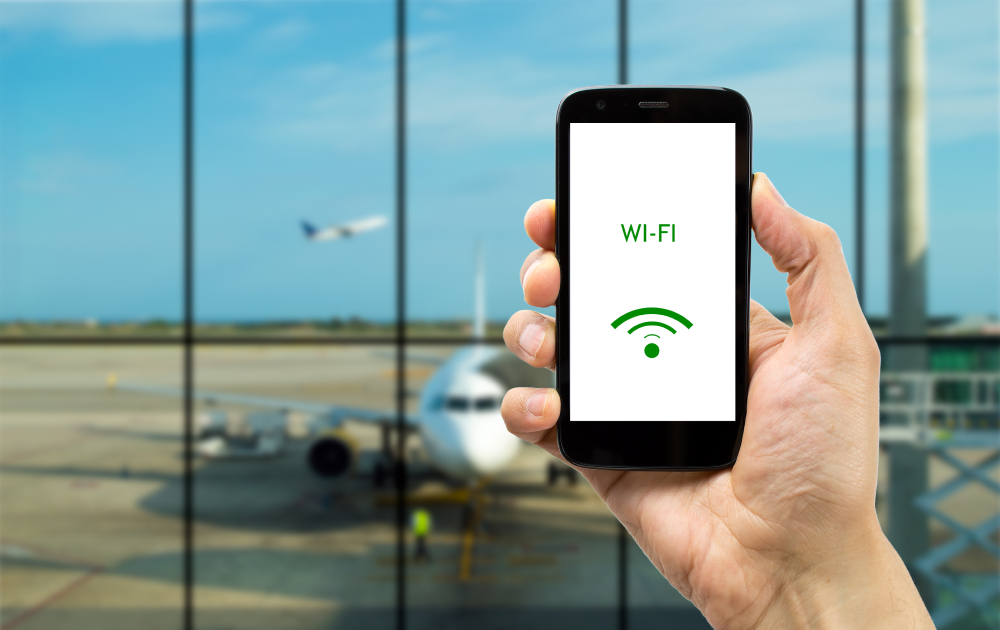It’s 2025 and we’re a long way from signal fires and drums being used for communication. From 1800s to the present, telephony has continuously evolved to achieve smoother and faster communication.
A journey that began with landlines connected through copper phone lines has reached a frontier that allows wireless calling through portable devices. You can now connect with people through WiFi calling or VoIP calling, using the internet as a medium.
VoIP and WiFi calling have become immensely popular in the global market, however, there is still some confusion around how they work.
While there are some similarities in both the calling methods, they are still not the same. Hence the question arises:
“VoIP vs WiFi calling- what is the difference?”
Let’s explore them one by one.
What is VoIP Calling?

Voice over IP calling aka VoIP calling works on Voice over internet protocol (VoIP) as its working mechanism that allows you to attend calls through the internet from any device. It converts your voice into small data packets, prioritizing the voice data over other data traffic for crystal clear calls.
VoIP is an umbrella technology that consists of VoIP phone services, virtual numbers, APIs and several more services to make calling a smooth experience for everyone. It uses an analogue-digital-analogue calling mechanism for better calling experience.
Advantages of VoIP Calling
- Cost-effective: VoIP calls are significantly more economical than traditional landline calls, especially for long-distance or international calls.
- Flexibility: You can use VoIP services on various devices, including desktops, smartphones, and tablets. This allows your agents to have more flexibility.
- Advanced features: Advanced VoIP solutions offer features like call forwarding, voicemail, and conference calling, often at a lower cost than traditional phone system.
- Scalability: VoIP can easily be scaled up or down to meet your company’s changing communication needs.
- Integration: You can integrate a VoIP solution with other business applications, such as CRM and customer support systems, improving efficiency.
Disadvantages of VoIP Calling
- Internet dependency: VoIP relies on a stable internet connection, which can be a disadvantage in areas with poor internet coverage or during internet outages.
- Technical complexity: Setting up and configuring VoIP systems can be more complex than traditional phone systems. You may require expert support.
Check out this blog: What is a VoIP Phone System?
How does a VoIP call work?
VoIP calls begin with a standard phone call made from either a computer or a smartphone through a VoIP application. As soon as you begin speaking, the microphone capturing your voice converts it into electrical signals. Once converted, an analog-to-digital converter (ADC) slices these signals into small data packets for transmission.
The cloud hosted PBX then compresses these data packets further to prioritize their transmission over other data like emails, media, etc. Upon reaching the other end, the recipient’s ADC converts the small data packets back to your voice signals, which is then played by the speakers.
What is WiFi Calling?

Voice over WiFi (VoWiFi) aka WiFi calling refers to calls made through a WiFi connection instead of your mobile network carrier. WiFi calling has become a popular communication channel that doesn’t require physical phone lines or specific applications.
Most modern smartphones are compatible with WiFi calling and have it as a built-in feature for use. They can be easily activated with a single toggle button, allowing you to make calls without relying on your cellular provider’s network.
Advantages of WiFi Calling
- Better coverage: WiFi calling can provide better coverage in areas with a weak network.
- Clarity: WiFi calling offers clearer call quality than traditional calling, especially in areas with poor coverage.
- Integration: WiFi calling can be integrated with other WiFi-enabled devices and services.
Disadvantages of WiFi Calling
- Requires WiFi feature: WiFi calling requires you to have the feature available on your network.
- Compatibility: WiFi calls may not be compatible with all devices or carriers.
- Limited features: WiFi calling doesn’t have specialized features for businesses.
- Security concerns: WiFi calling can be susceptible to security risks if the network is not secure.
How does a WiFi call work?
VoWiFi or WiFi calling uses your existing mobile service over a WiFi network. It uses your WiFi network instead of cellular towers for making and receiving calls. If you’re connected to the WiFi and your cellular network is weak, your device will utilize the VoWiFi technology to initiate the call.
Here your voice is converted into data packets just like a VoIP call, however, these packets travel across your mobile carrier’s infrastructure to reach the recipient’s phone number.
Save on Calling Costs: Learn about VOIP Vs WiFi Calling
Difference between VoIP Vs WiFi calling
Given the extensive usage of VoIP as well as WiFi everywhere, we must understand how they differ. Acquainting ourselves with their unique capabilities allows us to determine which of the two is better for our specific communication requirements.

VoIP vs. WiFi Calling: Choosing the Right Channel
Even though both of the calling methods are somewhat similar in nature, they cater to two different use cases and market segments.
Here are some of the factors that help determine which among VoIP vs WiFi calling service to get for your unique use case:
1. Calling Nature
The most important factor to consider is the nature of your daily calling. Since WiFi calling requires attending calls with your existing number, within the same coverage area, it ideally fits the requirements for personal calling.
On the other hand, VoIP calling can hold fluent local and international calling without revealing your phone number. It offers deep call insights and live monitoring and reports. Therefore, it is more suitable for business communication.
Check out this blog: Call USA from UK
2. Network Coverage
Your location stands as one of the primary determining factors when choosing between VoIP vs WiFi calling. Go for Wifi calling for areas with poor cellular services, if you have an active WiFi connection. It will serve as a replacement for your cellular calling and maintain communication consistency.
Whereas VoIP calling can be a viable option for areas with business communication as VoIP phone services are more scalable than regular calling. You can make and receive international calls through virtual numbers at a fractional rate, yet with more calling functionalities.
3. Cost-Effectiveness
WiFi calls that seem free at first might cost you significantly more than regular calls. While the calls themselves do not incur any charges, the data used to make such calls isn’t free. Regardless of your cellular service provider, data consumed through WiFi is quite hefty when compared to VoIP plans tailored for large call volumes.
There are plenty of VoIP phone providers that offer flexible and pay-as-you-go plans on a user-count basis for high quality VoIP calling at cheap rates.
4. Features
VoWiFi offers similar calling capabilities to your regular calling like voicemail, caller ID, etc. to maintain basic calling functionality without significant cellular coverage. Business VoIP, however, offers various features such as call recording, analytics, live monitoring, reporting, IVR, etc. to provide rich communication experience. If your communication requires extensive monitoring and functionality, VoIP calling services are your go-to-option.
Read our page “Contact center solutions” here.
The Bottom Line
Once you have considered all the factors involved in VoIP vs WiFi calling, you can opt for the method that resonates the most with your requirements. Keep in mind of your location, calling nature, and budget before selecting either of the two calling services.
If you need to make domestic calls through your phone number, WiFi calling is the ideal solution for you. If your calling communication requirements lie with contacting people and organizations from overseas, handling larger call volumes, VoIP calling is the right service for you.














